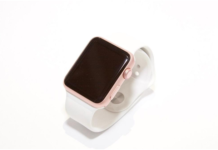Those who know will tell you there aren’t many roles that are often taken one for another as a product manager and a project manager. To many people, they are interchangeable titles for the same position.
The same individual actually serves in the two roles in some companies.
While the functions of a product manager and a project manager might seem to overlap in some ways, these roles are distinct. They require particular set of skills. Companies which combine the two positions in one often have issues along the way.
Product vs. Project – The Definitions
A clear grasp of what product and project entail is crucial to understanding the difference between a product manager and a project manager.
A product is anything that can be made available on the market to satisfy observed needs of the user or customer. Now, it can be a tangible good, an intangible good (such as software), a service or even an idea.
It goes from conception and development to availability on the market and ends with eventual discontinuation.
On the other hand, a project is a subset of a product. It is a defined, temporary endeavor that contributes to making available a product. It has a defined goal as well as fixed start and end dates.
Defined timeline is a major attribute that clearly distinguishes a project from a product.
Who is a Product Manager?
In an effort to distinguish, you’d often hear experts describe a product manager as the CEO for a product. They are in charge of strategic decisions. They oversee the conceptualization and development of products to fill observed needs of users.
A product manager sees to market research and comes up with product ideas based on users’ needs. They talk to the consumer to know their problems. They identify and investigate opportunities to know the best one to exploit.
It is the responsibility of a product manager to know when to release a product and when to pull it from the market. He is in charge to organizational training in regard to a product.
The person performing this role works closely with sales, marketing and support teams for maximum product success.
Essentially, product managers supervise the entire life cycle of a product line. They aim to satisfy the customer while also boosting the revenue potential of a company.
Who is a Project Manager?
An individual that supervises a project having a defined outcome, pertaining to a product, is a project manager. It is that person who ensures the execution of initiatives of a product manager towards achieving specific goals.
The project manager produces a timeline to guarantee timely and successful execution of a project. He plans and coordinates activities as well as people to ensure completion of a project within budget, in good quality and on time.
As the title suggests, a project manager is mainly concerned about the success of a project he is supervising. They place less emphasis on specific product goals, compared to a product manager. Their task is complete once a project is successfully executed. They may then move to other projects.
It is typical for a project manager to have a technical background. Such a person will have required expertise to transform objectives into achievable plans. This enables him to define tasks, set deadlines and assign necessary resources.
The person working in this role anticipates potential risks and considers steps to mitigate such. He or she has to provide status updates on progress from time to time.
Can One Person Combine the Two Roles?
Early Internet companies were known to combine product and project management in one. A product manager also performed the functions of a project manager. Microsoft is a good example of such companies.
However, it does not mean the practice has stopped. There are companies, including Microsoft, that are known to still combine the roles of a product manager and a project manager in one person. This is partly why many people cannot tell one role from another.
But the combo model is no longer advisable, although it might seem to have worked so well in the past. For quicker grasp of the differences between the two roles, you just need to consider the “What, why, how and when” questions.
A product manager is concerned with the questions:
- What?
- Why?
On the other hand, project managers deal with:
- How?
- When?
It might appear on the surface that the same person can work as both a product manager and project manager. But there are certain inherent issues where this is the case. They include the following:
Inadequate expertise – It is very likely that a product manager doubling as a project manager lacks requisite skills. He may not be able to handle the “how” and “when” questions efficiently. Such an individual might not have the necessary technical expertise to guide the execution process. Misuse of resources and delays could result.
Distraction – Having to supervise projects could rob a product manager of time to attend to his main responsibilities. Product discovery may suffer. He will have less time interacting with clients and probably not be able to see to his profit-and-loss function effectively.
Increased risk of failure – A company will find it harder achieving its product goals when one person handles both product management and project management. The tasks to attend to may prove too much for the individual. In this sort of situation, failure may be the inevitable outcome.
It is especially less advisable for a product manager to handle the tasks of a project manager when dealing with complex, extended projects.
Product Manager vs. Project Manager – Working Together
It is better for companies, specifically the sizeable ones, to have separate product and project managers. One focuses on strategy, while the other deals with execution.
This obviously doesn’t mean they work independently. One provides the vision and the other works to bring it to reality. They practically work hand-in-hand. Success is guaranteed through collaboration.
Product managers and project managers are inseparable. They are basically working towards the achievement of the same goals, although from different angles. A product manager will usually be involved in any project pertaining to the product. This kind of working relationship is vital in large-sized companies, which are usually involved in more intricate projects. It will ensure that more angles are properly or better covered for greater success. The project manager makes up for where the product manager may be lacking, technical wise








